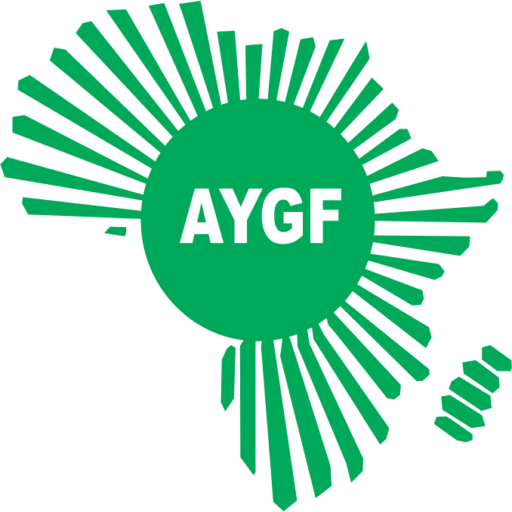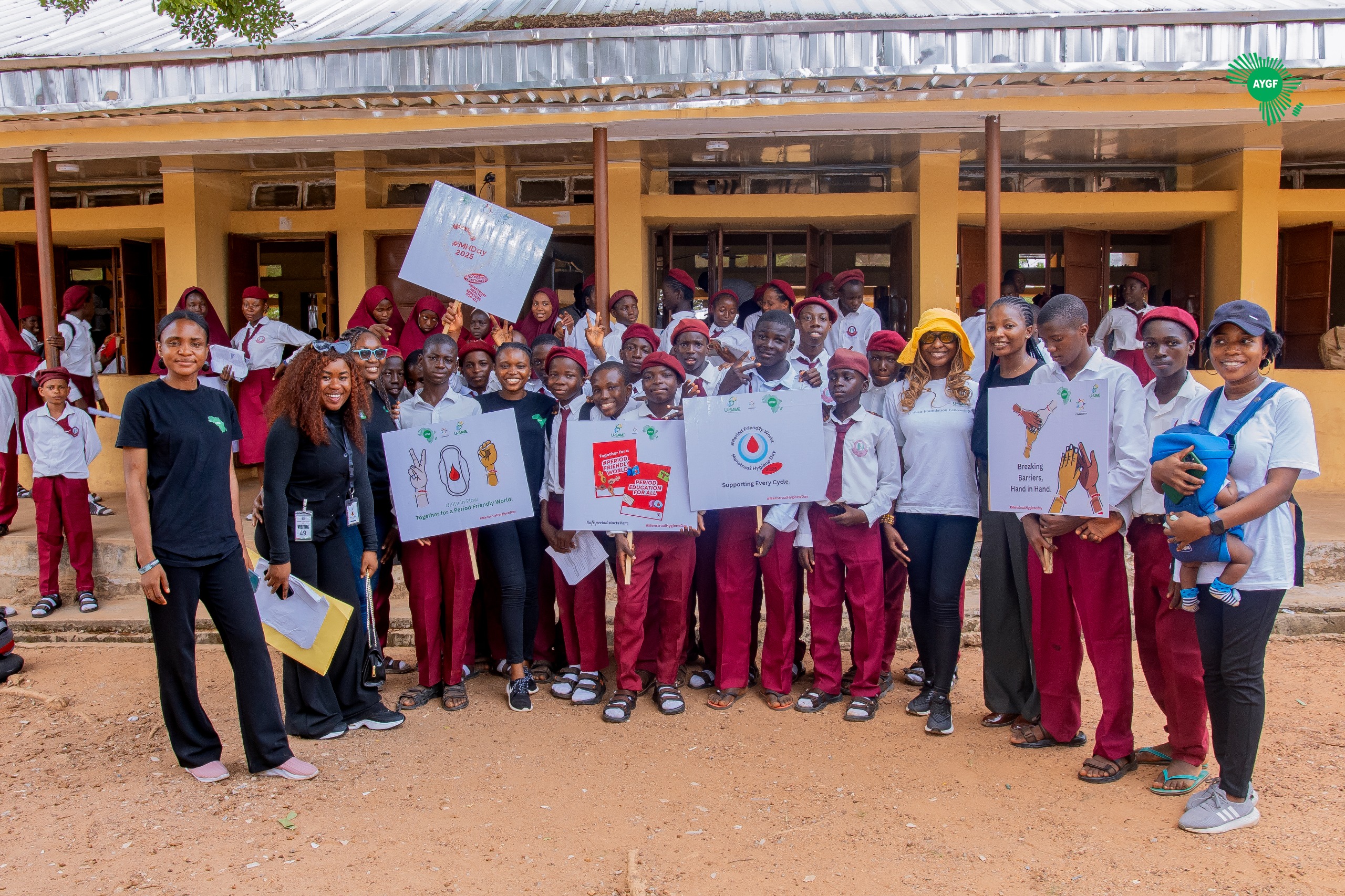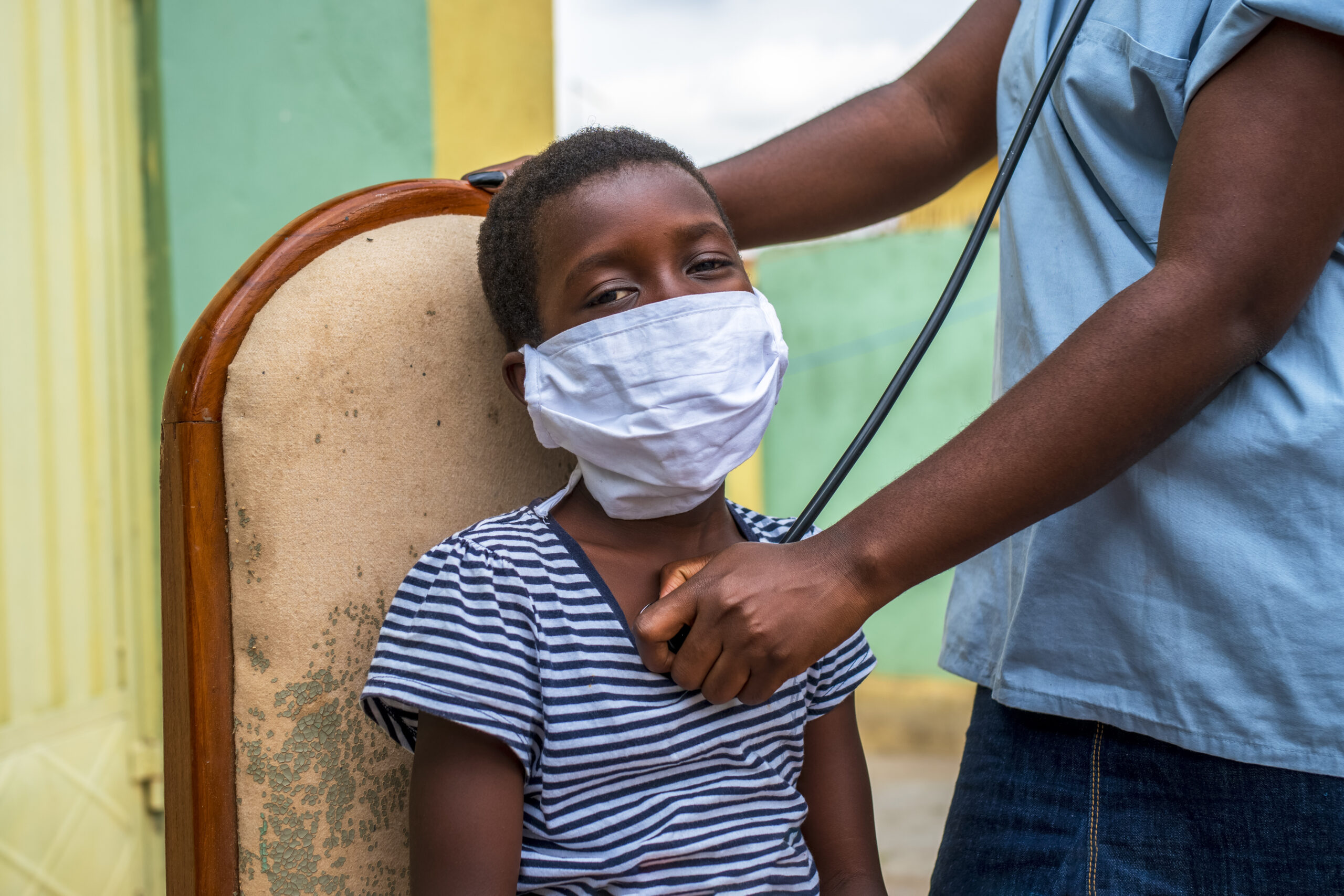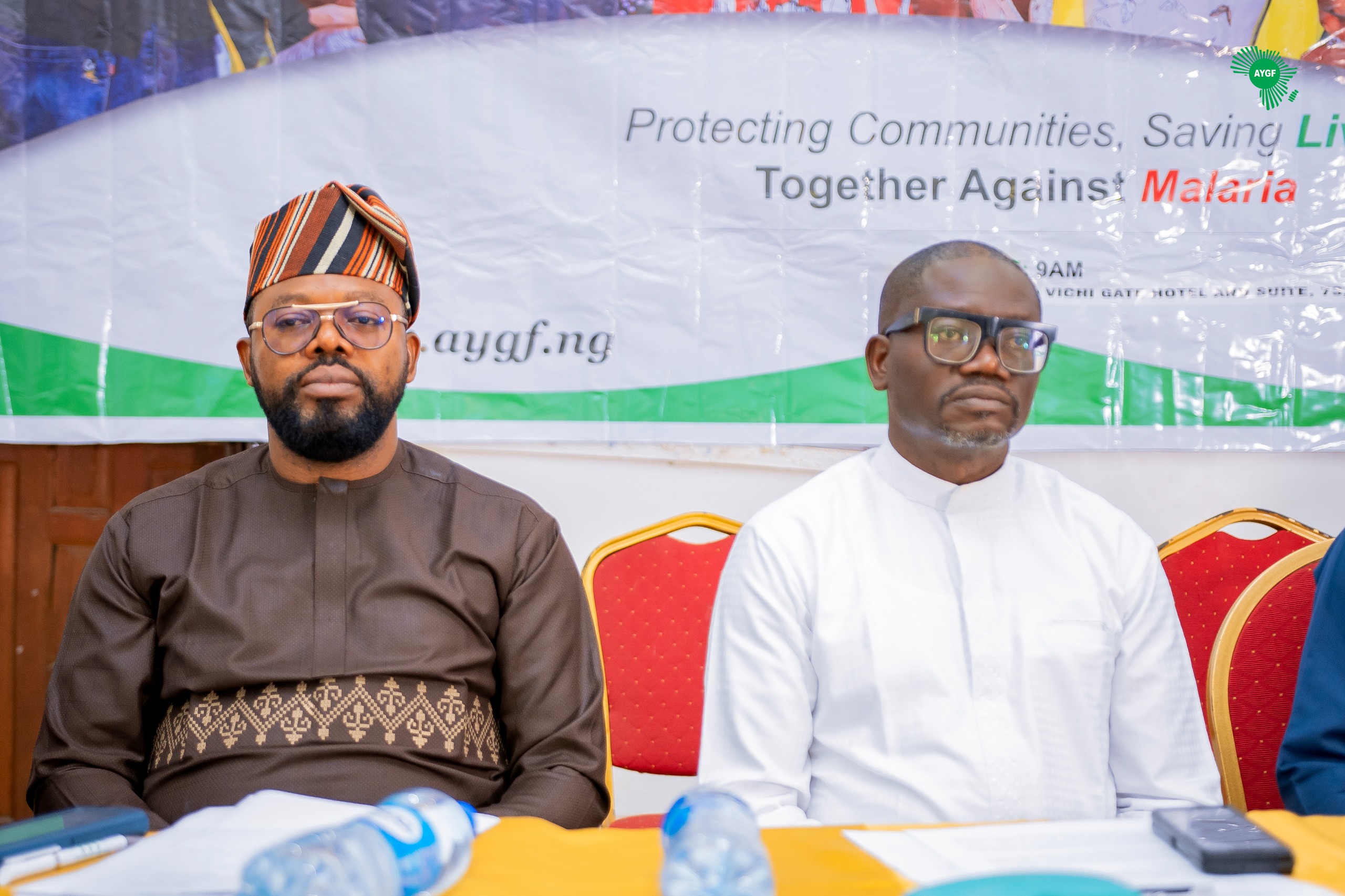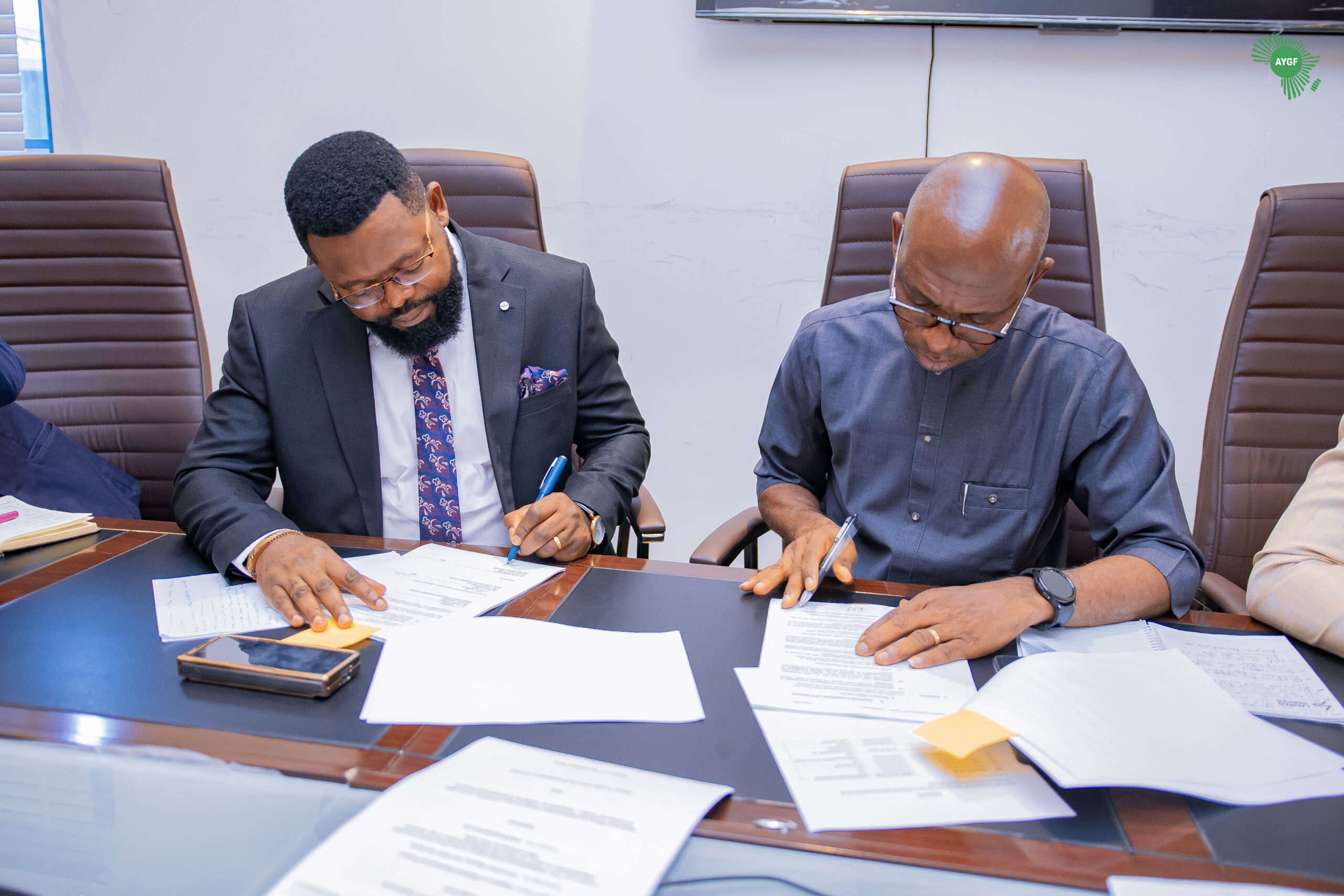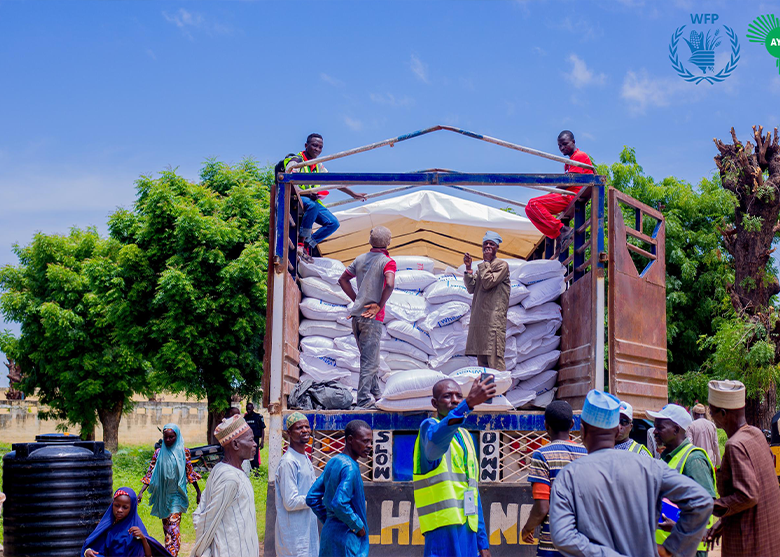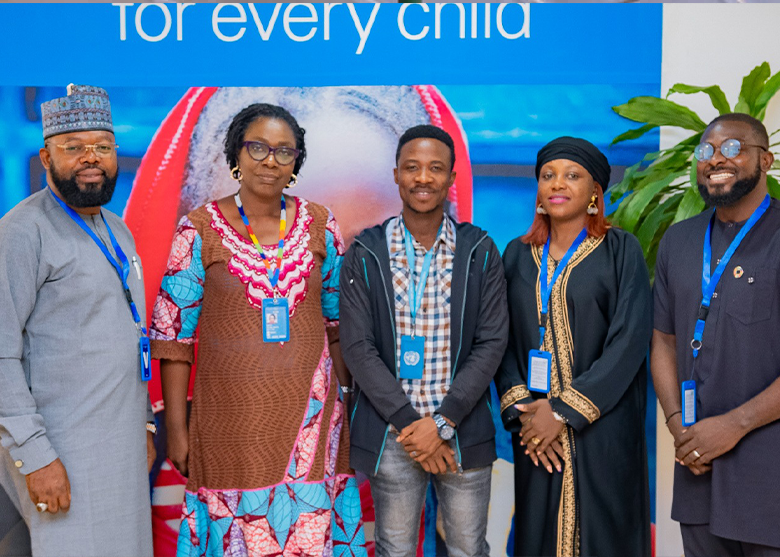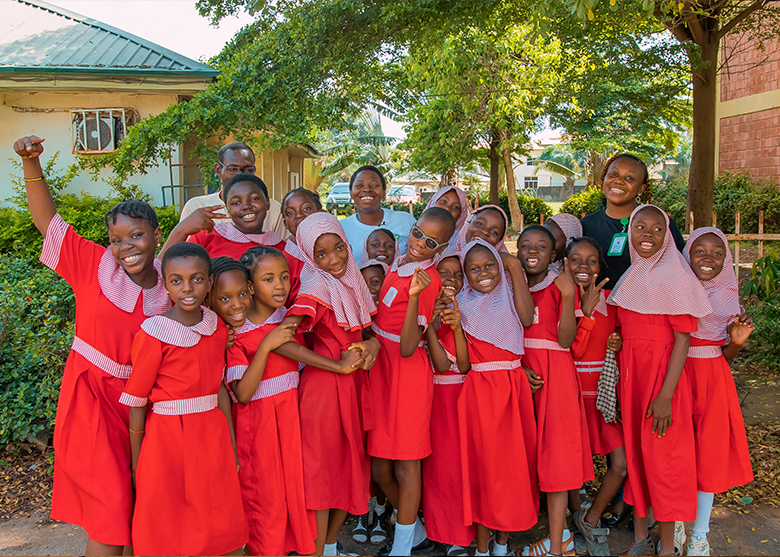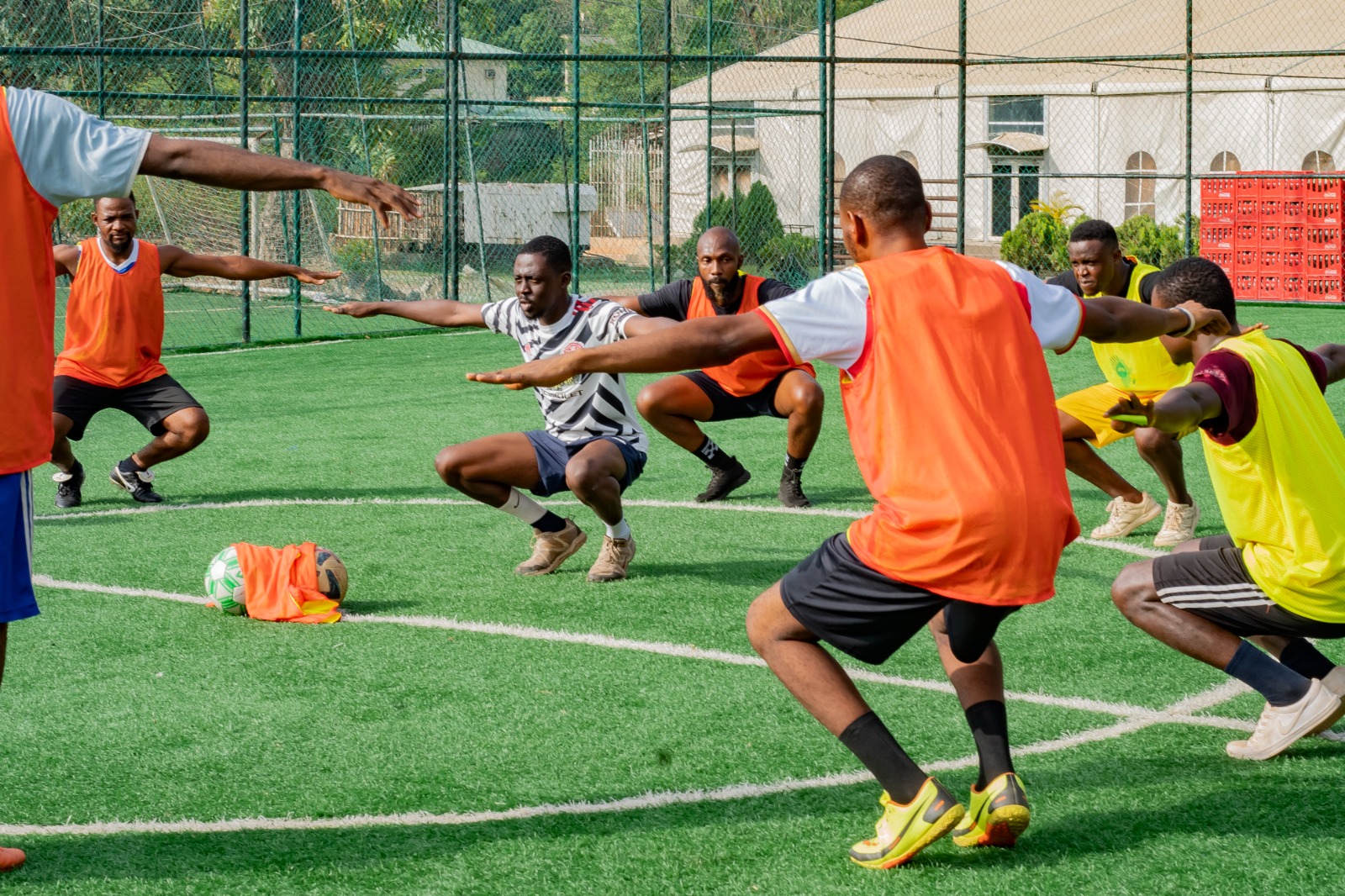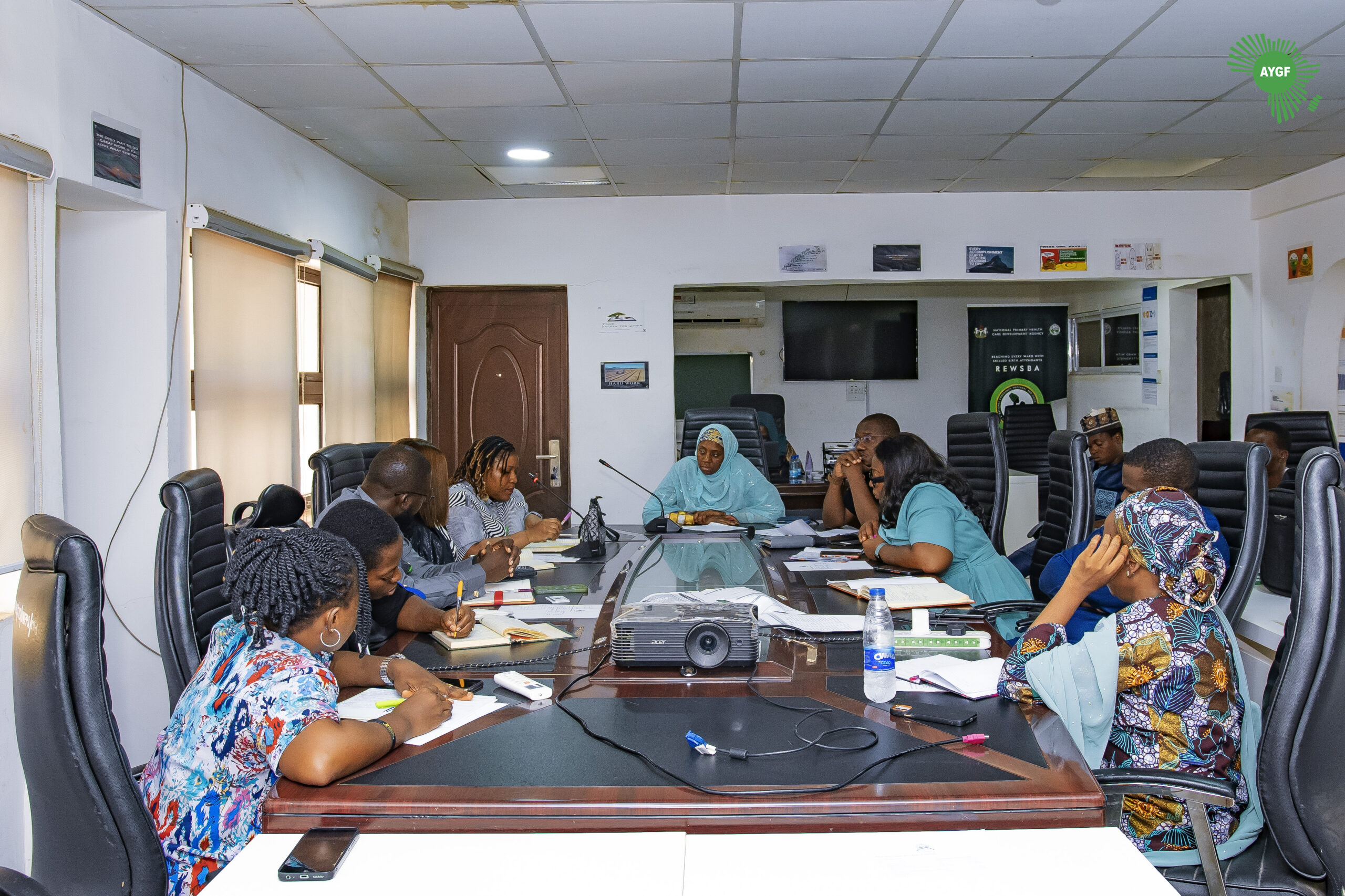To mark World Menstrual Hygiene Day, AYGF partnered with Usave Foundation and The Nutritionist Community to visit two schools in Bwari Local Government Area Council, Federal Capital Territory, Abuja. Our team engaged with students to raise awareness about menstrual hygiene, empowering young girls with vital knowledge while fostering understanding and support among boys. This meaningful outreach is part of our continued commitment to breaking the silence, challenging stigma, and creating inclusive environments where menstrual health is openly discussed and respected. Did you know that 1 in 10 girls in Sub-Saharan Africa miss school during their period due to lack of access to menstrual products? Or that 500 million people globally lack access to adequate menstrual hygiene facilities? Today, on World Menstrual Hygiene Day, AYGF is raising its voice to spotlight an often-ignored crisis—menstrual inequality. Menstruation is natural, yet millions are forced to manage it in silence, shame, or unsanitary conditions. It’s time to break the stigma and build a world where menstruation is not a barrier to health, education, or dignity. Celebrated every May 28, World Menstrual Hygiene Day was initiated to raise awareness and combat the taboos and stigma surrounding menstruation. The choice of 28/5 is symbolic, most menstrual cycles average 28 days, and the average duration of menstruation is 5 days. This year’s global theme, “Together for a #PeriodFriendlyWorld,” encourages collective responsibility—governments, NGOs, schools, families, and individuals must work hand-in-hand to ensure menstrual equity for everyone, everywhere. AYGF’s Commitment to Menstrual Health At AYGF, we believe that menstrual health is a critical component of human dignity, public health, and gender equality. Our commitment goes beyond awareness; we advocate for systemic change that ensures every individual who menstruates can do so with safety, confidence, and without shame. We recognize that addressing menstrual health means confronting deep-rooted stigma, inequalities, and gaps in access to essential resources. In many parts of the world, menstruation is treated as something shameful. Girls are told not to talk about it. Some are even excluded from school, religious activities, or household duties when menstruating. This stigma perpetuates ignorance and discrimination. AYGF believes education is the most powerful tool to dismantle these harmful norms. By engaging both girls and boys, we create inclusive spaces where menstruation is seen for what it is—a normal, healthy part of life. Change begins with awareness and action. Here’s how you can support the movement:
Health Today, Hope Tomorrow – World Health Day 2025
Every child deserves a healthy start in life. Yet, in many parts of the world, this remains a distant dream. Malnutrition, limited access to healthcare, and economic hardship prevent millions of children from reaching their full potential. As we mark World Health Day 2025, this year’s theme, “Healthy Beginnings, Hopeful Futures,” reminds us that investing in children’s health today is the foundation for stronger, more resilient communities tomorrow. In Nigeria, where 33% of children under five suffer from chronic malnutrition (stunting) and 60% of the population lacks access to essential health services, the urgency of this conversation cannot be overstated. Malnutrition is a silent crisis, robbing children of the ability to grow, learn, and thrive. In Northern Nigeria, where food insecurity and poverty are widespread, children often do not receive the nutrients they need for proper brain and body development. According to UNICEF, 2 million children in Nigeria suffer from severe acute malnutrition every year, yet only a fraction receive the treatment they need. Lack of proper nutrition in early childhood not only affects health but also influences future economic prospects. Malnourished children are more likely to perform poorly in school, struggle with productivity in adulthood, and experience long-term health issues. AYGF’s Commitment to Healthy Beginnings At Africa Youth Growth Foundation (AYGF), we recognize that health and nutrition are inseparable. A child who lacks proper nourishment is more vulnerable to infections, diseases, and developmental delays. That’s why we’ve made it our mission to bridge the gap in access to essential nutrition and healthcare. Through our partnership with the World Food Programme (WFP), we are delivering life-saving nutrition to 79,920 vulnerable individuals in Katsina State, Nigeria. Our General Food Assistance – Cash-Based Transfer (GFA-CBT) project provides targeted food assistance, ensuring that families, especially pregnant women and young children, receive the nutrients they need to thrive. By supporting households with cash-based assistance, we empower families to make dietary choices that suit their nutritional needs while also boosting local markets. In addition to emergency food assistance, AYGF is a key implementing partner in the Accelerating Nutrition Results in Nigeria (ANRIN) project, a World Bank-supported initiative aimed at tackling malnutrition through large-scale, community-driven interventions. So far, our work under ANRIN has: These interventions go beyond numbers, they translate to stronger immune systems, healthier pregnancies, and lower child mortality rates. Good nutrition is a long-term investment in healthier societies. When children receive balanced diets rich in proteins, vitamins, and essential minerals, they are less likely to suffer from preventable diseases like anemia, weakened immunity, and cognitive impairments. A well-nourished child is better equipped to learn in school, grow into a productive adult, and contribute meaningfully to their community. This is why AYGF’s approach to tackling malnutrition is holistic, combining food security, nutrition education, and sustainable diet strategies to break the cycle of poverty and ill health. As we observe World Health Day 2025, AYGF remains committed to Healthy Beginnings, Hopeful Futures. Through partnerships, community engagement, and evidence-based interventions, we are not only fighting malnutrition but also laying the groundwork for a healthier, more prosperous Nigeria. A child nourished today is a leader empowered tomorrow. The time to act is now.
Meningitis Outbreak in Kebbi: A Wake-Up Call for Public Health and Climate Action
A devastating outbreak of cerebrospinal meningitis has hit Kebbi State, claiming 26 lives and infecting 248 people across several local government areas. The state government has approved N30 million for emergency medical response, and isolation centers have been set up. But this crisis goes beyond an immediate health emergency. It highlights deeper public health gaps, environmental factors, and the growing impact of climate change on disease outbreaks. At AYGF, we believe that preventing future outbreaks requires a long-term approach—one that strengthens healthcare, increases vaccine access, and addresses the link between climate and infectious diseases. What is Meningitis and Why is it So Dangerous? Meningitis is an infection that affects the brain and spinal cord, leading to inflammation that can be fatal if untreated. It spreads through respiratory droplets (from coughing, sneezing, or close contact), making outbreaks common in crowded environments. Symptoms to Watch For Early detection is critical. Meningitis symptoms often appear suddenly and may include: In severe cases, it can lead to seizures, coma, and death. Immediate medical attention can save lives. Why Does Meningitis Keep Returning? The Kebbi outbreak is not an isolated incident. Nigeria is part of the “Meningitis Belt,” a region in Africa where outbreaks occur frequently, especially during the dry season (November–May). Several factors contribute to the recurring outbreaks: Limited Vaccination Coverage – Vaccines are the best protection against meningitis, but access remains uneven. The Climate Change Connection: A Growing Public Health Threat Many people do not realize that climate change is fueling the rise of infectious diseases like meningitis. Extreme heat and dry weather create the perfect conditions for bacteria to thrive. According to health experts, prolonged droughts, rising temperatures, and poor air quality are contributing to more frequent and severe outbreaks. As climate change worsens, meningitis and other infectious diseases will become bigger threats, especially in vulnerable regions. How Can We Prevent Future Outbreaks? Stopping meningitis requires a combination of short-term emergency response and long-term structural solutions. 1. Expand Vaccination Programs Vaccines remain the most effective way to prevent meningitis. More efforts are needed to ensure they reach every community, especially in high-risk areas. 2. Strengthen Healthcare Systems Investing in early disease detection, improved healthcare access, and rapid response teams will help control outbreaks before they spread. 3. Improve Public Awareness Many people do not recognize meningitis symptoms early enough. Public health campaigns can help people identify symptoms, seek care quickly, and adopt preventive measures. 4. Address Climate-Related Health Risks The fight against meningitis must include climate action. Governments and organizations must: At AYGF, we are dedicated to protecting communities from preventable diseases by advocating for: stronger healthcare systems that can handle disease outbreaks, community education programs to increase awareness and early detection, policies that integrate climate resilience into public health planning. The meningitis outbreak in Kebbi is a warning—one that we cannot afford to ignore. We need urgent action, not just to control this outbreak, but to prevent future ones. What Can You Do? We can stop the spread of meningitis and build a future where public health is prioritized, and climate change no longer fuels disease outbreaks. Join AYGF in this fight. The time to act is now.
AYGF Leads the Fight Against Malaria in Edo State
Malaria has been a major health issue in Nigeria for years, with the country accounting for about 25% of the world’s malaria cases. Even though it is a preventable and treatable disease, malaria still takes hundreds of thousands of lives every year. In Nigeria alone, over 200,000 people die from malaria-related complications annually. In Edo State, the malaria prevalence rate is about 30%, meaning nearly one in three people battle this disease. With numbers like these, it is clear that serious action is needed to curb its spread and impact. Recognizing this urgent need, Africa Youth Growth Foundation (AYGF), with support from the Edo State Government, National Malaria Elimination Program (NMEP) and the Islamic Development Bank, has launched the Support to Malaria Elimination Project. This project goes beyond just reducing malaria cases; it is a targeted effort to save lives, protect families, and secure a healthier future for Edo State. The official flag off on February 5, 2025, marks a significant achievement in the fight against malaria, bringing together government leaders, health experts, and international partners to implement sustainable solutions for malaria elimination. The Support to Malaria Elimination Project is designed to tackle malaria from multiple angles. Prevention is a key priority, as stopping mosquitoes from spreading the disease will significantly reduce infection rates. Through widespread distribution of insecticide-treated mosquito nets, communities will be better protected from mosquito bites. Treatment is another crucial aspect, ensuring that anyone infected with malaria has access to prompt and effective medical care. To achieve this, malaria testing and treatment will be provided free of charge at all government health facilities, removing financial barriers to life-saving care. Education is equally essential, as raising awareness about malaria prevention and early treatment can empower communities to take proactive measures against the disease. The project aims to make a measurable impact in Edo State. One of its primary goals is to increase the percentage of pregnant women receiving malaria prevention treatment from the current 21% to at least 80%. This will help reduce malaria-related complications during pregnancy and improve maternal and child health outcomes. Additionally, malaria treatment coverage is expected to rise from 71% to 100%, ensuring that no malaria-positive patient goes untreated. Another key target is increasing the use of insecticide-treated mosquito nets, which currently stands at a low 15.4%. Through the distribution of 1.3 million nets, this figure is projected to reach 80%, significantly reducing the risk of mosquito bites. While AYGF, in collaboration with NMEP and the Islamic Development Bank, is leading the charge against malaria, the success of this project also depends on community participation. Every individual has a role to play in malaria elimination, starting with simple actions such as sleeping under treated mosquito nets, maintaining a clean environment to prevent mosquito breeding, and seeking early treatment at health facilities. Raising awareness within households and communities will further strengthen the impact of the project, as knowledge and preventive habits are key to long-term malaria control. Malaria elimination is a realistic goal that can be achieved through collaboration, commitment, and sustained effort. As the Executive Director of AYGF, Dr. Arome Salifu, emphasized during the project flag off, a malaria-free Edo State is within reach if all stakeholders work together. With AYGF leading this vital project, backed by the expertise of NMEP and the financial support of the Islamic Development Bank, Edo State is set to witness a transformation in public health. Through collective action, communities can look forward to a future where malaria is no longer a threat, and families can thrive in a healthier environment. The fight against malaria is one that requires everyone’s involvement, and together, this disease can be defeated.
AYGF Joins Forces with Nigeria’s National Malaria Elimination Program to Combat Malaria in Edo State
In a determined effort to curb the scourge of malaria in Nigeria, the Africa Youth Growth Foundation (AYGF) has partnered with the National Malaria Elimination Program (NMEP) to launch an intensive anti-malaria initiative in Edo State. This strategic partnership is poised to bring significant advancements in malaria prevention and treatment, focusing on rural communities where malaria poses a severe health threat. Malaria remains one of Nigeria’s most pressing health challenges, with the country accounting for approximately 27% of the world’s malaria cases and over 100 million cases reported annually. This staggering statistic highlights the urgent need for targeted interventions and high-impact programs. AYGF and NMEP’s collaboration aims to tackle this issue head-on by enhancing access to quality malaria services, fostering community awareness, and promoting preventive measures that can reduce the disease’s prevalence. The initiative’s approach is holistic and community-centered, employing a range of strategies to effectively address malaria’s root causes and spread. One of the key components of the program will be community mobilization. Through this, AYGF and NMEP aim to engage local leaders and communities directly, ensuring that awareness of malaria prevention reaches every corner of Edo State. This will empower residents with the knowledge they need to protect themselves and their families from this preventable disease. Health education will also play a pivotal role in this initiative. Through training sessions, workshops, and public information campaigns, community members will learn about malaria symptoms, transmission methods, and the importance of early diagnosis and treatment. By equipping people with accurate information, AYGF and NMEP are working to dispel common myths about malaria and encourage prompt treatment-seeking behavior. A cornerstone of the program is the distribution of insecticide-treated nets (ITNs), which are proven to be one of the most effective tools in reducing malaria transmission. These nets are essential in areas where malaria-carrying mosquitoes are prevalent, especially during night-time when mosquitoes are most active. By distributing these nets on a large scale, the partnership aims to drastically reduce malaria cases, particularly among vulnerable populations like children and pregnant women. Health system strengthening is another priority of this partnership. AYGF and NMEP are committed to reinforcing the capacity of local health systems to handle malaria cases efficiently. This involves training healthcare workers, providing essential medical supplies, and improving the infrastructure needed for effective malaria treatment and prevention. With better-equipped health facilities and trained personnel, communities will have reliable access to quality malaria services, which is crucial for reducing the disease’s impact. To ensure the success of this initiative, AYGF and NMEP have set up a rigorous monitoring and evaluation system. This system will track the program’s progress, measure outcomes, and identify areas for improvement. By continuously assessing the impact of their efforts, AYGF and NMEP can make data-driven adjustments, ensuring that resources are used effectively and that the initiative yields meaningful results in the fight against malaria. Above all, AYGF and NMEP’s partnership is built on a foundation of equity, inclusivity, and social justice. They are committed to reaching the most vulnerable populations, ensuring that malaria prevention and treatment services are accessible to everyone, regardless of socioeconomic status or geographic location. By focusing on rural communities often overlooked in national health initiatives, this partnership addresses a critical gap in Nigeria’s malaria response.
AYGF, WFP Distribute Ukrainian Wheat to Support over 68,000 Vulnerable Households In Katsina State
According to the World Food Programme, the number of food-insecure Nigerians has dramatically risen from 66.2 million in Q1 2023 to 100 million in Q1 2024. Among these, 18.6 million are facing acute hunger, while 43.7 million are using crisis-level or worse coping strategies for hunger as of March 2024. In Northern Nigeria, the ongoing food crisis caused by security unrest remains a top priority. We are deeply committed to strengthening livelihoods to proactively address this critical issue. In response to this growing crisis, AYGF, in partnership with the WFP, has launched a wheat distribution project to support over 68,000 vulnerable households across 5 LGAs in Katsina State. The project launch, led by our Executive Director, Dr. Arome Salifu, was attended by esteemed dignitaries, including Dr. Hakeem Ajibola, UN WFP Representative; Maryam Sodangi, Senior Special Assistant to Governor Dikko Radda; and Madakin Katsina, Alhaji Hamza Abubakar-Duwan, representing the Emir of Katsina. This partnership demonstrates a united front in the fight against food insecurity. We remain dedicated to supporting vulnerable communities by providing essential food resources. Together, we are taking significant steps toward reducing hunger and offering hope to those in need, one household at a time. Our dedicated team of field officers is diligently working to ensure the seamless implementation and ultimate success of this vital project. Through this initiative, our primary objective is to eradicate food insecurity and empower the livelihoods of numerous beneficiaries.
COURTESY VISIT TO UNICEF
In our ongoing commitment to improving the nutritional health of mothers and children, AYGF recently paid a visit to the UNICEF team. The team was led by the Executive Director, Dr. Arome Salifu with the Head of the Programs Department, Nelson Egbunu and Programs Officer, Imaga Oji. The meeting centred on sustainable strategies to address the nutritional needs of children under five, pregnant women, and lactating mothers, particularly in the context of the post-ANRiN (Accelerating Nutrition Results in Nigeria) program. We are enthusiastic about future collaborations with UNICEF to promote continuous healthy lives for these vulnerable groups.
AYGF EDUCATES 100 STUDENTS AT LEA 1 WUSE ZONE 2 ON SAFE PRACTICES TO PREVENT CHOLERA
Nigeria has had to grapple with an unexpected increase in Cholera cases in the last few weeks. A situation report from the Nigeria Centre for Disease Control (NCDC) indicates over 1000 suspected cases, across 31 states. As part of our ongoing efforts to combat the Cholera Outbreak in Nigeria, AYGF recently took the awareness campaign to LEA 1 Wuse Zone 2. The team engaged with over 100 pupils, emphasizing the critical importance of handwashing, and other ways to prevent the spread of cholera.. Handwashing with soap can significantly reduce the transmission of cholera and other infectious diseases. It’s one of the simplest yet most effective measures to prevent the spread of germs. By educating children, we are empowering the next generation to adopt healthy habits that can protect their families and communities.
AYGF TEAMS UP WITH DOCTORS WITHOUT BORDERS (DWB) FOR A FRIENDLY MATCH
Team AYGF joined forces with Doctors Without Borders (DWB) for a friendly football match. It served as a team-building exercise, fostering camaraderie through a shared love of sports. The match provided an opportunity for AYGF and DWB to build rapport while exploring the potential for future collaboration on future projects. At AYGF the ability to balance work, family and fun is at the core of what makes us a formidable team. Follow us on all our social media pages for real-time updates on all our activities. Thank you and we look forward to hearing from you.
AYGF PAYS COURTESY VISIT TO NATIONAL PRIMARY HEALTH CARE DEVELOPMENT AGENCY (NPHCDA)
Towards strengthening Community Advocacy and provision of primary health care services in Nigeria, the AYGF team paid a courtesy visit to the National Primary Health Care Development Agency, NPHCDA. Received, by the Director NPHCDA, Dr Memuna Hamisu and her team, AYGF was commended for the good work done over the years in the area of public health which aligns with areas NPHCDA is committed to. The meeting highlighted the need for improved healthcare delivery, sustainability of healthcare initiatives in Nigeria and building partnerships.
